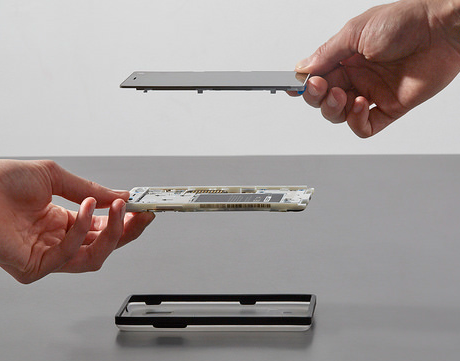This backs up a growing business case for sustainable innovation, suggesting: a healthy price premium, growing revenues, better customer loyalty, and increased employee motivation, from new sustainable product development. We are witnessing a sea-change in the way businesses embrace corporate sustainability, shifting from bottom line cost and reputational drivers, to it becoming a driver for top-line growth and competitive advantage.
Yet it is one thing to recognise the opportunity from sustainability; another entirely to act on it effectively. Today’s innovator could risk mishandling sustainability by defaulting back to traditional innovation methods and approaches in which sustainability all too frequently falls off-the-radar.
We will need new approaches and processes, and new corporate mind-sets to tap this $1trn opportunity. The business case will help wake managers up to the opportunity, but cannot show them ways to unlock it; for this we must move from ‘why to’ to a ‘how to’. Here are three important factors to kick start sustainable innovation: – one organisational, one process, one a mind-set change.
Embed sustainability at the front-end
Companies have generally managed sustainability by creating stand-alone teams, then deployed this through internal, operational functions like quality, operations, finance, supply chain, etc. In contrast, sustainable innovation will be delivered through fuzzy-front end, early-stage functions; like R&D, marketing, strategy, product development or design, or alternatively through external partners like creative agencies, incubators or collaborative partnerships.
Some, like GE, Philips, and DuPont do this by significantly investing in sustainability-led research and development to successfully growing green portfolios and revenues. Others establish their sustainability reporting line through marketing: Unilever’s Chief Marketing and Communications Officer, Keith Weed, has board responsibility for sustainability, while organic food company Royal Wessanen has a Chief Marketing and Sustainability Officer.
80% of the environmental impacts of today’s products and services are determined at the early-stages of their development.
Companies look to the front-end as 80% of the environmental impacts of today’s products and services are determined at the early-stages of their development. Yet sustainability is frequently added-on at later, more operational development and detailing stages; after important decisions are made. Sustainable innovation is best managed early-on by these marketplace functions to ensure success.
Beyond consumer insights
How we innovate must also change too. Customer-focussed, human-centred, user-driven; innovation and marketing today are driven by consumer and customer insight methods. There are two fundamental problems with this on sustainability:
First, despite the Unilever research, customers in other categories and in certain regions can be indifferent and less committed to sustainability. Unilever’s own data shows a marked difference between sustainability commitment from developed (UK/US) versus emerging markets (Brazil/Turkey) which is backed up by National Geographic research showing western market consumers flat-lining on sustainability interest. There remains a question of whether the case for sustainable innovation will really come from consumer or customer insights. Former CEO of M&S, Stuart Rose, famously positioned their sustainability program (Plan A) as half-a-step ahead of consumers stating that: “If you wait for customers to tell you that you need to do something, you’re too late. Good business leaders should be half a step ahead of what customers want”. Brands need to be comfortable leading customers on sustainability.
Secondly, consumer/customer insights only really deliver consumer/customer benefits while sustainable products must serve other members of society too – like supply chain workers, employees, communities or the environment.
 Pioneering start-up Fairphone created the worlds first ethical, modular and repairable smartphone. Consumers can repair and replace broken components, like the screen or speaker, allowing them to keep the phone for longer. The phone is ethically sourced ensuring materials and components are conflict-free and fairly traded, meaning workers in the supply chain are free from exploitation and factory employees get a fair deal for their work. Longer lasting phones also helps reduce e-waste mountains and the burden of extracting increasingly scarce resources on our planet. Sustainable innovations need to be humanity-centred – as much as human-centred – seeking insights and benefits from wider stakeholders than customers alone.
Pioneering start-up Fairphone created the worlds first ethical, modular and repairable smartphone. Consumers can repair and replace broken components, like the screen or speaker, allowing them to keep the phone for longer. The phone is ethically sourced ensuring materials and components are conflict-free and fairly traded, meaning workers in the supply chain are free from exploitation and factory employees get a fair deal for their work. Longer lasting phones also helps reduce e-waste mountains and the burden of extracting increasingly scarce resources on our planet. Sustainable innovations need to be humanity-centred – as much as human-centred – seeking insights and benefits from wider stakeholders than customers alone.
Reframe sustainability challenges as big innovation opportunities
Sustainability issues have historically been seen as ‘impacts to manage’ and ‘risks to mitigate’ in business, but this isn’t great for innovation. The world faces unprecedented environmental and social challenges – climate change, resource scarcity, water shortage, poverty and inequality – and this requires innovators mind-sets to shift, from a focus on ‘your business’ to ‘our world’.
There are some promising signs of this, with growing interest in pro-poor strategies, circular economy projects, and climate innovation, while a growing number of companies reporting against the Sustainable Development Goals (SDG’s) also lays testament to this. A further step will be to pursue new business opportunities that accelerate our path to the SDG’s 2030 goals, rather than measuring how today’ business activities overlap them.
Global carpet manufacturer’s pioneering Net-Works program has created a social business model, setting up a supply chain to source recycled nylon from discarded fishing nets left as waste in the ocean. This provides much needed employment and income for poor coastal fishing communities (SDG #8) and helps reduce ocean plastic waste which can disrupt delicate coastal ecosystems (SDG #14). Sustainability innovators must not simply reduce their own negative impacts, but see opportunity, growth and creativity in humanities big problems – using business as a force for social good.
Sustainability offers a powerful new set of innovation and marketing lenses that can give brands a commercial edge. There will be many issues for innovators to consider in unlocking this opportunity, but these three factors will help ensure that future innovations are successful and sustainable.
About the author
 Chris Sherwin is the Director at Reboot Innovation, a creative consultancy on a mission to change what and how we innovate – for a better world. We fuse world-changing innovation, marketing and design with cutting-edge sustainability and ethical business. We are the sustainable innovation partner to brands and innovators who want to practically design a green, fair and prosperous world.
Chris Sherwin is the Director at Reboot Innovation, a creative consultancy on a mission to change what and how we innovate – for a better world. We fuse world-changing innovation, marketing and design with cutting-edge sustainability and ethical business. We are the sustainable innovation partner to brands and innovators who want to practically design a green, fair and prosperous world.
Featured image via Yayimages.







